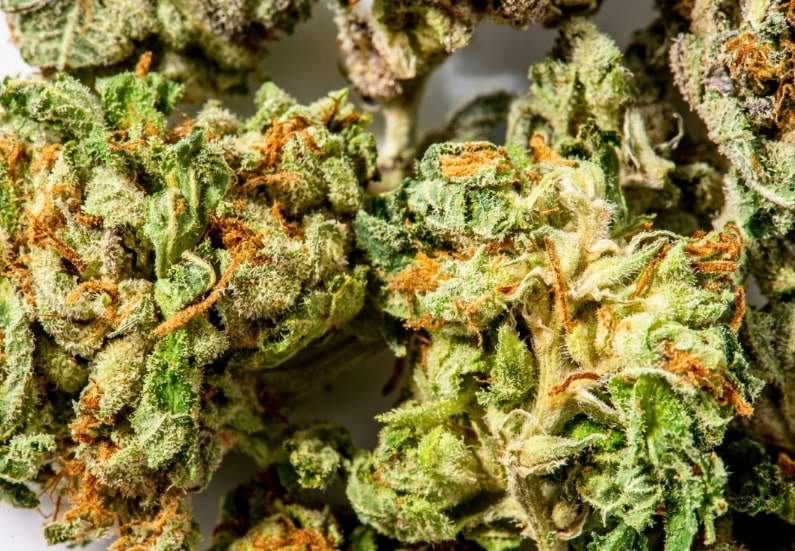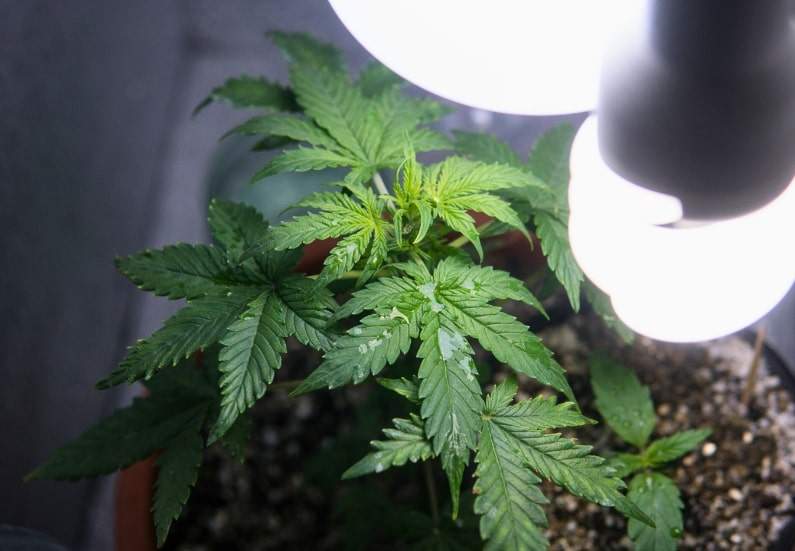
Smoking cannabis has long been a controversial topic. Some people swear by its ability to ease pain, anxiety, and insomnia, while others worry about the health risks it presents. Whether you’re a seasoned user or just curious, it’s important to understand both sides of the story.
Cannabis isn’t just a simple plant; it’s a complex mix of compounds that can have various effects on the body and mind. The conversation around smoking cannabis is often polarized, but as with most things in life, the truth lies somewhere in between. Let’s dive deep into the benefits and risks of smoking cannabis.
Understanding Cannabis: What’s Inside?
Before we explore the health impacts, it’s essential to understand what cannabis is. Cannabis contains more than 100 chemical compounds called cannabinoids, but the two best-known are THC (tetrahydrocannabinol) and CBD (cannabidiol).
- THC is the psychoactive component, meaning it’s what gets you “high.”
- CBD, on the other hand, is non-psychoactive and has become popular for its potential therapeutic benefits.
The way these compounds interact with the brain and body determines how cannabis affects us. The method of consumption also plays a role, and smoking remains one of the most common ways people use cannabis.
Smoking Cannabis: What Are the Benefits?
Cannabis advocates often focus on the medicinal and therapeutic effects, which have been well-documented over recent years. While smoking may not be the healthiest way to consume cannabis, it does offer certain benefits that attract users.
Pain Relief
One of the most well-known benefits of cannabis is its ability to reduce pain. THC interacts with the brain’s pain receptors, making chronic pain conditions more manageable. Many users with conditions such as arthritis, multiple sclerosis, or migraines have turned to cannabis as a natural alternative to pharmaceutical painkillers.
Cannabis doesn’t block pain in the way opioids do, but it can alter the perception of pain, making it more bearable. This makes it particularly useful for people living with persistent pain that doesn’t respond well to other treatments.
Check Out The Best Online Cannabis Stores >>
Anxiety and Stress Reduction
It might seem counterintuitive, primarily when cannabis is known for causing paranoia in some users, but many people report that smoking cannabis helps them manage anxiety and stress. Low doses of THC, in particular, have been shown to have a calming effect on users. Non-psychoactive CBD is even being studied for its anti-anxiety properties.
Of course, not everyone experiences reduced anxiety from cannabis use. In some cases, higher doses of THC can heighten anxiety, so it’s a matter of finding the right balance for each individual.
Sleep Aid
For those who struggle to fall asleep, cannabis can be a helpful remedy. Indica strains, known for their more relaxing effects, can ease the mind and body, making it easier to drift off to sleep. Some users prefer cannabis over sleep aids like melatonin or prescription sleeping pills, claiming that it helps them achieve a deeper, more restful sleep without feeling groggy the next day.
Potential Anti-Inflammatory Properties
There’s growing evidence to suggest that cannabis may have anti-inflammatory properties. This could be beneficial for those suffering from inflammatory diseases like Crohn’s disease, irritable bowel syndrome (IBS), or even acne. Inflammation is at the root of many chronic diseases, so anything that reduces it has the potential to improve overall health.
The Risks of Smoking Cannabis
While the benefits of cannabis can’t be denied, it’s equally important to recognize the risks. Smoking, in particular, can pose several health concerns, mainly when used frequently over long periods.
Respiratory Issues
First and foremost, smoking anything—whether it’s tobacco, cannabis, or something else—introduces harmful chemicals into the lungs. Smoke contains carcinogens, which can irritate the respiratory system. Over time, regular cannabis smokers can experience chronic bronchitis, coughing, and phlegm production.
Though cannabis smoke doesn’t contain as many harmful chemicals as tobacco smoke, it’s still not harmless. Long-term cannabis smokers are more likely to develop respiratory issues, and there’s an ongoing debate about whether cannabis smokers face an increased risk of lung cancer.
Mental Health Concerns
While cannabis can help reduce anxiety in some users, it can have the opposite effect on others. High doses of THC can trigger anxiety, paranoia, and even panic attacks. For individuals predisposed to mental health disorders, such as schizophrenia or bipolar disorder, cannabis use may exacerbate symptoms.
There is also growing concern that frequent cannabis use, especially during adolescence, can affect brain development. Some studies suggest that heavy cannabis use in young people can lead to cognitive deficits, memory problems, and a decreased ability to concentrate.
Addiction and Dependency
Though cannabis is often considered less addictive than substances like alcohol or nicotine, that doesn’t mean it’s entirely risk-free. Some individuals can develop a dependency on cannabis, mainly if they use it frequently to cope with stress or other emotional issues. Cannabis use disorder, while not as common as other substance use disorders, is an actual condition that affects a small percentage of users.
Regular cannabis use can lead to tolerance, meaning users need to consume more to achieve the same effects. This can spiral into a cycle of dependency where the individual feels unable to function without cannabis.
Impact on Heart Health
Smoking cannabis may also have an impact on heart health. The act of smoking raises the heart rate, which can be problematic for individuals with heart conditions. In some cases, cannabis use has been linked to an increased risk of heart attacks, especially in older adults or those with preexisting cardiovascular issues.
Additionally, THC can cause blood vessels to expand, which may lead to lower blood pressure. While this might sound beneficial, sudden drops in blood pressure can cause dizziness or fainting in some users.
Is Smoking Cannabis Right for You?
If you’re considering smoking cannabis, it’s essential to weigh both the potential benefits and risks. Cannabis affects everyone differently, and what works for one person may not be suitable for another. If you’re using cannabis for medical reasons, it’s a good idea to consult with a healthcare provider to ensure it won’t interfere with any other treatments or exacerbate existing health conditions.
For those who enjoy cannabis recreationally, moderation is key. Being mindful of how often and how much you smoke can help minimize the potential risks. Many people find that using cannabis in conjunction with other wellness practices—such as exercise, meditation, or therapy—can create a more balanced and healthy approach to stress and anxiety management.
Alternatives to Smoking Cannabis
Given the potential respiratory risks associated with smoking, many cannabis users are turning to alternative methods of consumption. These methods can provide the same benefits without the harmful effects of smoke on the lungs.
Edibles
Edibles are a popular alternative to smoking because they deliver the same effects without requiring any inhalation. Whether it’s in the form of gummies, brownies, or beverages, edibles offer a discrete and long-lasting way to consume cannabis. However, they can be much stronger than smoking, so it’s important to start with a low dose and wait for the effects to kick in.
Vaporizers
Vaporizers, or vapes, have become a trendy way to consume cannabis. Vaping involves heating the cannabis to release its active compounds in the form of vapor rather than smoke. Many users find vaping to be less harsh on the lungs, though the long-term health effects of vaping are still not fully understood.
Tinctures and Oils
For those seeking a more controlled dose, tinctures and oils offer a reliable alternative to smoking. These products can be taken sublingually (under the tongue) or added to food and drinks. Tinctures are favored for their fast-acting effects and ease of use.
It’s Your Choice
In the end, cannabis is a personal choice. Whether you’re using it for medical reasons or to unwind after a long day, understanding the benefits and risks can help you make an informed decision. Smoking cannabis comes with its fair share of potential hazards, but for many, the benefits outweigh the downsides. By choosing the right strain, method of consumption, and dosage, it’s possible to enjoy the therapeutic effects of cannabis while minimizing harm to your health.
FAQs
Does smoking cannabis cause lung damage?
Smoking cannabis can lead to respiratory issues such as chronic bronchitis and coughing. While the risks are not as severe as with tobacco, inhaling smoke still introduces harmful chemicals into the lungs.
Can cannabis help with anxiety?
Cannabis can help reduce anxiety for some people, particularly at low doses. However, higher doses of THC may increase anxiety or cause paranoia in certain users.
Is cannabis addictive?
Cannabis is less addictive than substances like nicotine or alcohol, but it is still possible to develop a dependency, especially with frequent use.
What are the risks of smoking cannabis for heart health?
Smoking cannabis increases heart rate and may pose risks for individuals with preexisting heart conditions. It can also cause drops in blood pressure, leading to dizziness or fainting.
Are edibles safer than smoking cannabis?
Edibles are generally considered safer for the lungs because they do not involve inhaling smoke. However, they can be more potent and take longer to feel the effects.
Can young people smoke cannabis safely?
Cannabis use during adolescence can affect brain development and may lead to long-term cognitive issues. It is generally recommended to avoid cannabis use during teenage years.
Conclusion: Health Risks and Benefits of Smoking Weed
Smoking cannabis is a practice that comes with both potential health benefits and risks. While it can be effective in treating conditions such as chronic pain, anxiety, and sleep disorders, it’s important to be aware of the respiratory, mental health, and heart-related risks. Exploring alternative consumption methods, like edibles or tinctures, may offer a safer way to enjoy the benefits of cannabis without the downsides of smoking. Ultimately, responsible use and moderation are essential to reaping the therapeutic advantages while minimizing harm.
I got to run; it’s almost 4:20!
More Cannabis Education
Top 10 High-Yield Cannabis Strains for Growers That Will Blow Your Mind
Growing cannabis is as much an art as it is a science. Every grower wants the same thing…
Top 10 Low-Maintenance Cannabis Strains to Grow Indoors
The world of indoor cannabis growing is a place where you can coax leafy green…
How to Set Up a Small Indoor Cannabis Grow Room
There’s something wildly charming—bordering on romantic—about turning a closet or unused…
10 Proven Ways to Cure Cotton Mouth When Smoking Marijuana (And Fix It Fast)
Have you ever taken a puff and suddenly felt like your tongue just walked through the…
LED vs. HPS Grow Lights: What’s Best for Growing Indoor Cannabis?
So, there I was, face-to-face with my cannabis plants, trying to decode their droopy leaves like a…
You May Also Like

Top 10 Low-Maintenance Cannabis Strains to Grow Indoors
The world of indoor cannabis growing is a place where you can coax leafy green…

How to Set Up a Small Indoor Cannabis Grow Room
There’s something wildly charming—bordering on romantic—about turning a closet or unused…

10 Proven Ways to Cure Cotton Mouth When Smoking Marijuana (And Fix It Fast)
Have you ever taken a puff and suddenly felt like your tongue just walked through the…

LED vs. HPS Grow Lights: What’s Best for Growing Indoor Cannabis?
So, there I was, face-to-face with my cannabis plants, trying to decode their droopy leaves like a…

How to Smoke Weed and Meditate: 7 Surprising Steps to a Higher State of Mind
There’s something paradoxically hilarious about trying to sit still and clear your mind while…
Most Recent Posts

Top 10 Low-Maintenance Cannabis Strains to Grow Indoors
The world of indoor cannabis growing is a place where you can coax leafy green…

How to Set Up a Small Indoor Cannabis Grow Room
There’s something wildly charming—bordering on romantic—about turning a closet or unused…

Top 10 Most Popular Hybrid Cannabis Strains (With Effects & Flavor Notes)
If cannabis were a cast of characters in a Broadway play, Indica would be lounging in a velvet…

10 Proven Ways to Cure Cotton Mouth When Smoking Marijuana (And Fix It Fast)
Have you ever taken a puff and suddenly felt like your tongue just walked through the…

LED vs. HPS Grow Lights: What’s Best for Growing Indoor Cannabis?
So, there I was, face-to-face with my cannabis plants, trying to decode their droopy leaves like a…







